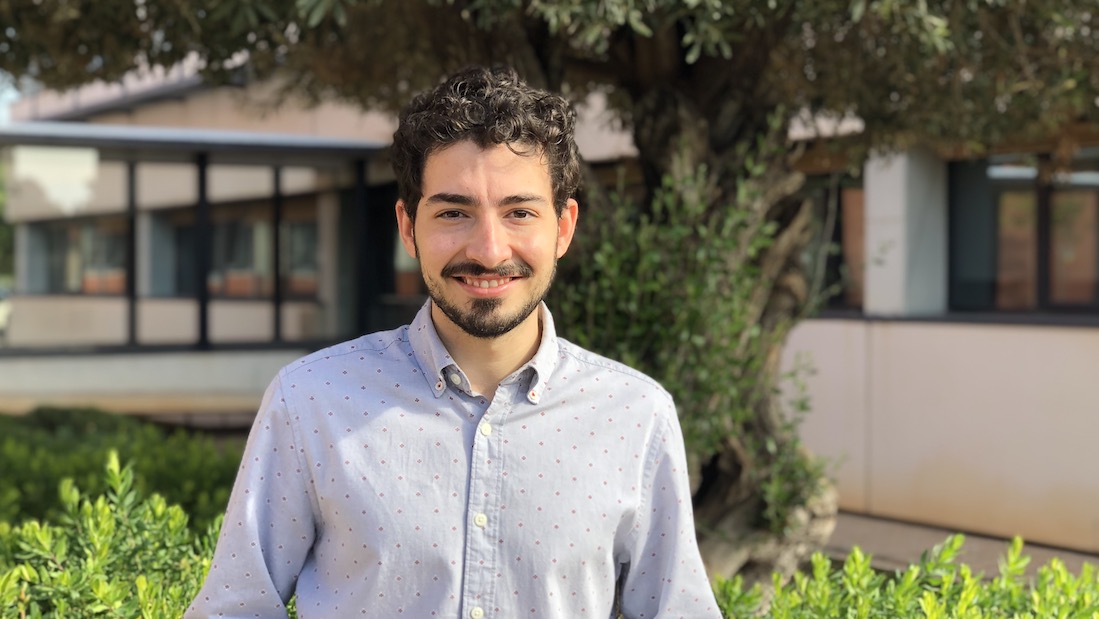The chemist and doctor in Nanoscience and Nanotechnology Álvaro Martínez Camarena (Valencia, 1992) has won the XXVI «Estudi General» European Award for the Dissemination of Science with his work Lo común y lo extraordinario. El oxígeno: historia íntima de una molécula corriente (‘The common and the extraordinary. Oxygen: an intimate history of an ordinary molecule’), in which he analyses the key role of this element in science and culture. The researcher has received the award, convened by the University of Valencia, endowed with 12,000 euros and delivered virtually by the rector of the institution, Mavi Mestre, this Friday afternoon, within the framework of the “Ciutat d’Alzira” Literary Awards.
The work, organized in six chapters, analyses the lesser known factors around molecular oxygen, such as its role in the development of degenerative diseases such as Alzheimer’s or Parkinson’s or how it can be used to eliminate tumours. It also deals with reactive oxygen species, a “rarity” to which the book dedicates, consisting of molecules that are produced in cells resulting from oxidation or reduction reactions where oxygen intervenes.
The rector of the University of Valencia, Mavi Mestre, who congratulated the winner, also highlighted: “the «Estudi General» European Award for the Dissemination of Science and the works published in the «Sense Fronteres» collection are a very clear commitment and demonstration of the interest of the University of Valencia in the dissemination of science”.
With this work Álvaro Martínez wants to create a compendium of oddities about oxygen, in the style of the cabinets of curiosities of the palaces of the western nobles and monarchs of the sixteenth century, which were full of objects brought from exotic territories. In the award-winning work, treasure is a non-metallic element on the periodic table.
“I want to give weight to those investigations, those medical treatments that overturn what we think we know. Show the extraordinary hiding on one of the most common molecules that we can find”, indicates the also postdoctoral researcher at the Institute of Molecular Science (ICMol) of the University of Valencia and at the Paris-Saclay University.
For the author of Lo común y lo extraordinario. El oxígeno: historia íntima de una molécula corriente (‘The Common and the Extraordinary. Oxygen: an intimate history of an ordinary molecule’), “the walk on the exotic side of oxygen allows us to reflect on the fallacy of some postulates so easily accepted as the assignment of positive values to the natural and negative to the chemical”, he says about complexity of the organism and the limited existing knowledge about it. “This fact shows the importance of research in basic sciences, beyond the direct utility of its discoveries”, explains Martínez.
In this sense, the winner of the popularisation award has highlighted: “to know a compound or a chemical substance it is not enough to observe its most common side, but you have to go through its limits and walk along its most extreme side. To really know them, you have to tempt them and put them to the test: you have to penetrate into the oddities that it tends to hide”.
The jury this year has been formed by María Dolores Real, vice-rector for Innovation and Transfer and who has chaired it; Carolina Moreno, director of the «Sense Fronteres» collection; Pere Puigdoménech, awarded in the XXV edition of this award; M. Teresa Ferrer, researcher at the UV Department of Spanish Philology; and Ismael Mingarro, researcher at the UV Department of Biochemistry and Molecular Biology.
Biography
Álvaro Martínez Camarena has a degree in Chemical Sciences and a doctorate in Nanoscience and Nanotechnology from the University of Valencia, a subject on which he also has a master’s degree. In addition, he has a master’s degree in Journalism and Scientific Communication from the National University of Distance Studies. His research area is focused on the design of new molecular systems with antioxidant activity, especially for the treatment of neurodegenerative diseases such as Alzheimer’s or Parkinson’s.
Since he began his research career in 2016, Álvaro has carried out various research stays at the University of Vienna and the University of Florence, and has published more than 15 articles in international journals. In 2014 he received the Extraordinary Degree Award and in 2018, the Fernando Pulidori International Award, awarded to a young researcher in the area of thermodynamics.


